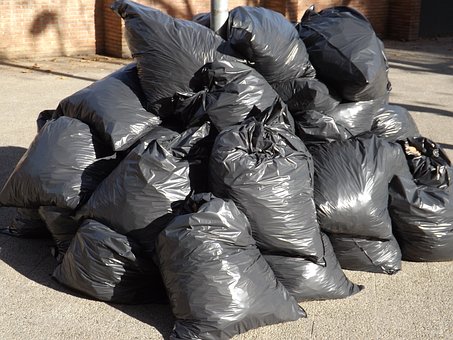Welcome to KDS Environmental
Reliability
100%
Affordability
100%
Professionalism
100%
Reputation
100%
 It is clear that the amount of home waste produced is increasing year after year at a disconcerting rate, and federal governments are under pressure to broaden existing land fills or construct brand-new ones to accommodate the waste that is being produced.
It is clear that the amount of home waste produced is increasing year after year at a disconcerting rate, and federal governments are under pressure to broaden existing land fills or construct brand-new ones to accommodate the waste that is being produced.
What is Hazardous Household Waste?
Household waste is leftover from home products. Dangerous home waste are home products which contain chemicals that have the potential to affect plants, the health of humans and animals and are damaging to the environment when handled incorrectly
Improper management of home waste has the potential to be very damaging to the environment, people, and animals. What many of us might not understand is that many of those common home products contain corrosive, harmful, or flammable chemicals that can be hazardous to the environment if not dealt with or managed properly.
Dangerous home waste should not be disposed of in the same way as regular waste. For instance, gas can be buried in the ground, can affect rivers, and find its way into drinking water. The hydrocarbons in motor oils or pesticides have the potential to bio-accumulate in freshwater fishes and can find its way in the food cycle. Burning hazardous waste results in the release of harmful chemicals and fumes in the air. Once released into the environment, these chemicals are dispersed over big areas, thus impacting the health of individuals over a broader area.
Some of these chemicals stay in the systems of plants and animals for a very long time and might enter the food cycle when the impacted plants and animals are consumed.
 Bioaccumulation of hazardous substances in the systems of plants, animals, and humans has the potential to affect their reproductive lives, growth, hinder the function of various organs such as the liver and kidneys, affect the functioning of the central nervous systems and immune systems of human and animals and some have been listed as known carcinogens.
Bioaccumulation of hazardous substances in the systems of plants, animals, and humans has the potential to affect their reproductive lives, growth, hinder the function of various organs such as the liver and kidneys, affect the functioning of the central nervous systems and immune systems of human and animals and some have been listed as known carcinogens.
How Can You Tell a Product is Hazardous?
Check out the labels of products. In Bergs Mill and other parts of the country, labels are required for all products. These should provide information on the constituents of the products, consisting of symbols and words, to show the hazard to animals, humans, and the environment if mishandled.
How To Tell If Products Are Hazardous?
Constantly check out the label of products in your home and make it a routine of checking out the labels of a product before making the decision to buy them.
What Can You Do to Manage Contaminated Materials?
Purchase Environmentally Friendly Products – Experts agree that the best way to manage waste is to not produce it in the first place. You can start by avoiding the purchase of products that contain chemicals that are harmful to humans, animals, and the environment. Purchase those products that are naturally degradable or friendly to the environment.
Safe Product Storage – Ensure that hazardous products are stored in a safe place, that their containers are not harmed, do not have any leakages to reduce the danger of infecting water sources, land, humans, animals, plants, and the environment. Ensure that corrosive products like acids are kept in separate areas from other hazardous products.
Check products regularly to ensure that there are no leakages and broken covers or bulging sides.
Constantly store products in their original containers to prevent unintentional usage.
Ensure that these products are kept in a place where children and animals have no access to them.
Disposal of Products – Disposal of products should always be the last hope. Why? Due to the fact that there are no safe ways of getting rid of hazardous waste. You can prevent the issue of hazardous waste disposal by either picking naturally degradable products, recycling the product, giving the excess products to friends, next-door neighbors, or family or purchasing smaller volumes of the product.
 If, nevertheless, disposal is inevitable, then you should get rid of the waste in the way prescribed on the label.
If, nevertheless, disposal is inevitable, then you should get rid of the waste in the way prescribed on the label.
Although there are laws to regulate the handling and use of big quantities of hazardous waste, the presence of laws to regulate the common small quantities produced at the home is non-existent. For this reason, the duty for the management of hazardous waste falls squarely on the shoulders of the hazardous waste generators.
Protection of the environment can only occur when you contribute in finding innovative ways to re-use, recycle, or reduce waste. This is essential if we are to protect the environment and health of future generations. Keep In Mind That Waste Management is Your Business, My Business, Our Business.
if you are in Bergs Mill or Southton, Hilltop, Terrell Wells, Buena Vista, San Jose, Columbia Heights, Earle, Cassin, Boldtville, Palo Alto Park, call us now!
We are experts in environmental clean-up, and we can help you with eradicating dangerous items in your home. Our number one goal is to ensure that the environment is safe for everyone to live in, and your health is protected. Get in touch with us today and get a free, no-obligation quote.
We are the best eco-friendly company you can trust in Southton, Hilltop, Terrell Wells, Buena Vista, San Jose, Columbia Heights, Earle, Cassin, Boldtville, Palo Alto Park and Bergs Mill.